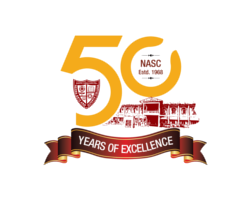



| PO 1. Critical Thinking | |
| 1.1 | Acquire the ability to apply the basic tenets of logic and science to thoughts, actions and interventions. |
| 1.2 | Develop the ability to chart out a progressive direction for actions and interventions by learning to recognize the presence of hegemonic ideology within certain dominant notions. |
| 1.3 | Develop self-critical abilities and also the ability to view positions, problems and social issues from plural perspectives. |
| PO 2. Effective Citizenship | |
| 2.1 | Learn to participate in nation building by adhering to the principles of sovereignty of the nation, socialism, secularism, democracy and the values that guide a republic. |
| 2.2 | Develop and practice gender sensitive attitudes, environmental awareness, empathetic social awareness about various kinds of marginalisation and the ability to understand and resist various kinds of discriminations. |
| 2.3 | Internalise certain highlights of the nation’s and region’s history. Especially of the freedom movement, the renaissance within native societies and the project of modernisation of the post-colonial society. |
| PO 3. Effective Communication | |
| 3.1 | Acquire the ability to speak, write, read and listen clearly in person and through electronic media in both English and in one Modern Indian Language. |
| 3.2 | Learn to articulate, analyse, synthesise, and evaluate ideas and situations in a well-informed manner. |
| 3.3 | Generate hypotheses and articulate assent or dissent by employing both reason and creative thinking. |
| PO 4. Interdisciplinarity | |
| 4.1 | Perceive knowledge as an organic, comprehensive, interrelated and integrated faculty of the human mind. |
| 4.2 | Understand the issues of environmental contexts and sustainable development as a basic interdisciplinary concern of all disciplines. |
| 4.3 | Develop aesthetic, social, humanistic and artistic sensibilities for problem solving and evolving a comprehensive perspective. |
| 1 | The programme with structured curricula will support the academic development of the undergraduates. |
| 2 | The programme will provide the students with the opportunity to pursue courses that emphasize quantitative, qualitative and theoretical aspects of economics. |
| 3 | The programme will provide a well resourced teaching learning environment for the students of economics, which will definitely lead to the ultimate educational goal of "learning to be". |
| 4 | The programme will promote academic writing, critical thinking and research aptitude among the students. |
| 5 | Needless to point out, the students will gain a source of livelihood by expanding their skill set and widening their knowledge horizon. |